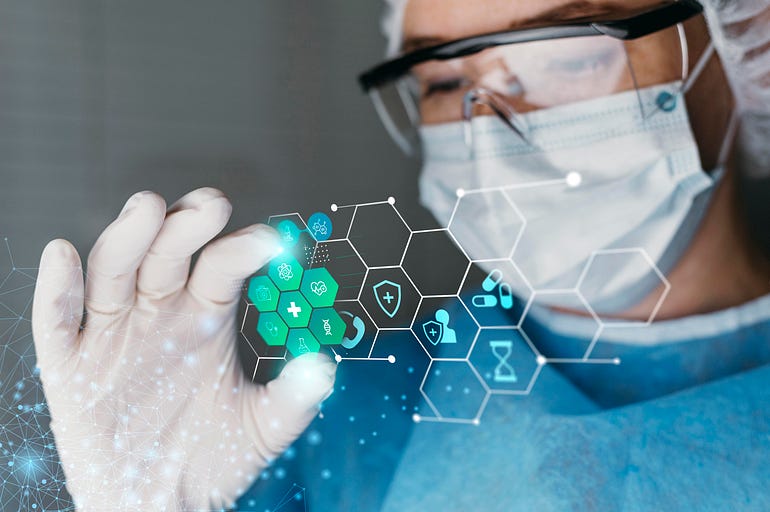Can AI Replace Human Expertise in Healthcare?

In the rapidly evolving landscape of healthcare, the emergence of artificial intelligence (AI) models has generated both excitement and apprehension. These AI models, driven by sophisticated algorithms and vast datasets, hold the potential to revolutionize various aspects of healthcare. However, the question of whether AI models will replace healthcare professionals is a complex one that requires a nuanced exploration of the roles, capabilities, and limitations of both entities.
The Promise of AI in Healthcare
AI models have already demonstrated remarkable capabilities in healthcare. They can process and analyze large volumes of medical data with unprecedented speed and accuracy, aiding in tasks such as medical image analysis, disease prediction, and drug discovery. The efficiency of AI-driven algorithms offers healthcare professionals valuable time to focus on direct patient care and complex decision-making.
Furthermore, AI models can provide accessible and immediate information to patients and caregivers, increasing health literacy and promoting proactive health management. These models excel in providing standardized information for common medical queries, helping individuals understand their symptoms and potential courses of action.
The Human Factor — Expertise, Empathy, and Ethics
While AI models exhibit impressive feats, they lack the depth of human expertise, empathy, and ethical reasoning that define the healthcare profession. Healthcare professionals possess a wealth of knowledge acquired through years of education, training, and real-world experience. This expertise is essential for accurate diagnosis, especially in complex and rare cases that require an understanding of multiple factors, medical history, and patient preferences.
Empathy is another cornerstone of healthcare that AI models cannot replicate. The human touch, both figuratively and literally, is vital for patient comfort, reassurance, and emotional support. Healthcare is not solely about diagnosing and treating medical conditions; it involves understanding the emotional and psychological dimensions of illness.
Ethical considerations further emphasize the significance of human involvement. Medical decisions often require a nuanced understanding of a patient’s unique circumstances, as well as careful consideration of the broader societal implications. Healthcare professionals are trained to navigate these complexities, making ethically sound choices that prioritize patient well-being.
The Synergy-Human-AI Collaboration
Rather than being in competition, AI models and healthcare professionals can form a powerful symbiotic relationship. AI can excel in data-driven tasks, augmenting diagnostic accuracy, analyzing medical images, and providing standardized information. This frees up healthcare professionals to focus on patient interaction, personalized care plans, and complex decision-making.
AI tools can assist in preliminary screenings and triage, enabling healthcare providers to allocate their attention effectively. They can also aid in continuous learning by aggregating and synthesizing the latest medical research and guidelines.
In a nutshell
The future of healthcare lies not in the replacement of healthcare professionals but in their collaboration with AI models. The combination of human expertise, empathy, and ethical judgment with AI’s computational power can create a healthcare ecosystem that offers accurate diagnoses, personalized treatments, and enhanced patient experiences. As we navigate the evolving landscape of AI in healthcare, it is imperative to recognize the unique strengths of both AI models and healthcare professionals, fostering a harmonious partnership that ultimately benefits patient care and outcomes.


Author –Ragesh R
IT professional specialized in healthcare technologies with over two decades of experience. He also has a fondness for photography, traveling, designing, painting, and sharing knowledge.





